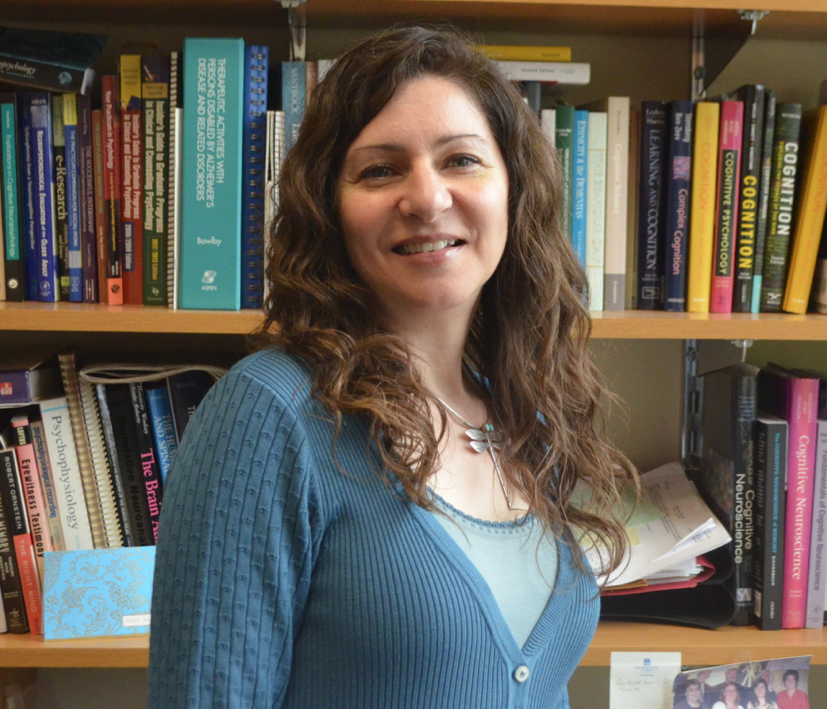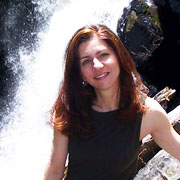“It was either three or five, I don’t remember the exact number now,” Nielson said about the other women faculty. “I remember just being stunned at what a low number that was. It’s certainly a boy’s club.”
“I think there’s a lot of women who (participate in leadership roles) very quietly,” Nielson said. “Especially on this campus, I think it’s common that people look down on promoting yourself. So not very many people do it anyway. In fact, that’s something Marquette really needs to learn.”
Nielson worked in a regional office for State Farm Insurance before coming to Marquette, where she took classes at night and kept the job until she found her passion.
“Women still have to make very difficult choices about how to balance everything that men never conceive of,” Nielson said. “It’s still, even in this era, a very complex thing for a woman to choose to do this kind of a career.”
Nielson studied engineering and took culinary classes before deciding to major in communication disorders. Her first course on brain anatomy had her hooked.
“I completely crashed and burned falling in love with the brain,” Nielson said. “I just knew that I wanted to do that and neuroscience became a no-brainer.”
The Aging, Imaging and Memory Lab, Nielson’s research program, is at the forefront of scientific research on memory. Using technology such as MRI scanning, the AIM Lab investigates how memory can be made stronger and how the brain ages.
Students use the lab to search for the roots of Alzheimer’s disease and dementia. The lab also collaborates with researchers, universities and clinics from around the world to better understand human memory. But undergraduate and graduate research assistants are at the center of it all.
“Until I started working with her, I had no idea that we had anyone looking at aging and memory,” said Amber Brandolino, a senior in the College of Arts & Sciences. “Dementia and Alzheimer’s disease are a huge focus in her lab. Hopefully one day we gain enough knowledge that some point maybe it … will be curable.”
As a professor and mentor for many young women, Nielson works to encourage and expose students to research careers in hopes to show them that they can pursue careers beyond clinical work.
“It doesn’t mean I don’t think they can’t be great practitioners,” Nielson said. “They can, but think about the reach. Think about how we really solve the bigger problems. Some of us have to tackle it from a different level. I would encourage (students) to not be afraid that they can do that.”
Markie Pasternak, a junior in the College of Arts & Sciences, said her interactions with Nielson were life changing. Since she’s a McNair scholar, Pasternak chose Nielson as one of her faculty research sponsors and is working on her own project in the AIM Lab. She said Nielson’s mentoring helped her with becoming a researcher.
“You can tell when someone has a lot of faith in you and supports you,” Pasternak said. “It’s hard to find people that you look up to. Dr. Nielson is one of, if not, the female researcher that I look up to. Being able to see myself in her has helped me get through a phase in my life where I thought getting a PhD wasn’t going to be plausible anymore.”
Nielson’s career in a field majorly made up of men makes her aware of the need for more women researchers. She described attending conferences of 20,000 to 30,000 neuroscientists who were mostly men. She said she is aware that she is paid less than men across the country, but she could not imagine herself in any other career.
Correction: This story was changed from an original version. The story originally stated that Kristy Nielson was the only “full-time” female faculty member in the psychology department. Nielson is the only female full professor in the psychology department. There are eight female full-time professors and seven tenure-track female faculty members in the department. The Wire regrets the error.



